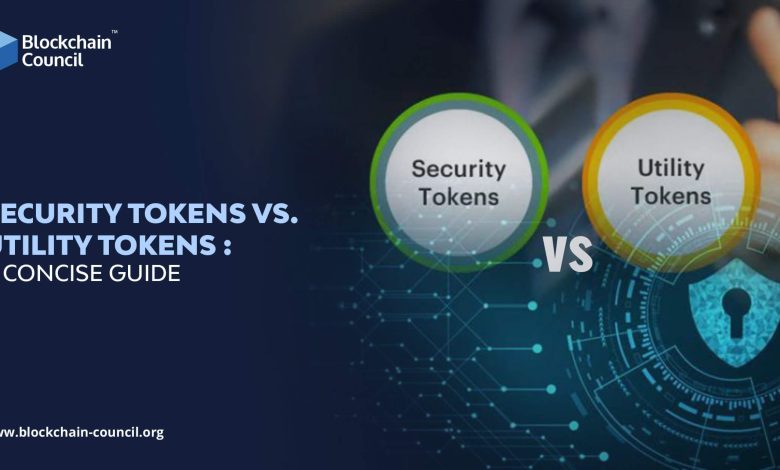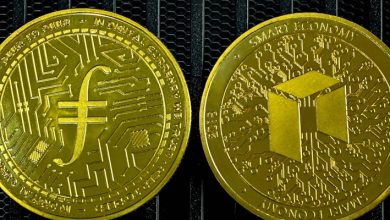Comparing Utility Tokens vs. Security Tokens

- Understanding the difference between utility tokens and security tokens
- Key characteristics of utility tokens
- Key characteristics of security tokens
- Regulatory considerations for utility tokens
- Regulatory considerations for security tokens
- Investment potential of utility tokens vs. security tokens
Understanding the difference between utility tokens and security tokens
When it comes to investing in tokens, it is crucial to understand the difference between utility tokens and security tokens. Utility tokens are digital assets that provide access to a product or service within a specific platform. They are not designed as investments and do not represent ownership in the company. On the other hand, security tokens are tokens that are backed by real-world assets such as equity, profits, or revenue. Security tokens are considered as investments and are subject to regulations by financial authorities.
Utility tokens are typically used to access a platform’s features or services, while security tokens are more akin to traditional securities like stocks or bonds. Utility tokens are often used in crowdfunding campaigns or initial coin offerings (ICOs) to raise funds for a project, while security tokens are issued through Security Token Offerings (STOs) and are subject to securities regulations.
Investors should be aware of the distinction between utility tokens and security tokens to make informed decisions about their investments. While utility tokens may offer access to a platform’s services, security tokens provide ownership rights and potential returns based on the performance of the underlying asset. Understanding the difference between these two types of tokens is essential for navigating the complex world of token investments.
Key characteristics of utility tokens
Utility tokens are a type of cryptocurrency that provide users with access to a specific product or service within a particular ecosystem. These tokens are not designed as investments, but rather as a means of accessing and utilizing a platform or network. Here are some key characteristics of utility tokens:
- Functionality: Utility tokens have a specific use within a platform or network, such as accessing services, paying for goods, or participating in governance.
- Not an investment: Unlike security tokens, utility tokens are not intended to represent ownership in a company or provide dividends. Their primary purpose is to facilitate interactions within a specific ecosystem.
- Redeemable: Utility tokens can typically be redeemed for the products or services offered within the platform. They may also have utility beyond the platform, such as being traded on exchanges.
- Utility token sales: Projects often raise funds by selling utility tokens to users who want to access their platform. These sales are not considered securities offerings, as the tokens are not investments.
- Regulatory considerations: Utility tokens are generally subject to less stringent regulations than security tokens, as they are not considered financial instruments. However, regulatory frameworks vary by jurisdiction.
Overall, utility tokens play a crucial role in enabling users to engage with decentralized platforms and networks. By providing access to specific services or products, these tokens help drive adoption and usage within the ecosystem.
Key characteristics of security tokens
Security tokens have several key characteristics that differentiate them from utility tokens. These characteristics include:
- Liquidity: Security tokens are typically more liquid than utility tokens, as they represent ownership in an asset or company.
- Regulation: Security tokens are subject to securities regulations, providing investors with legal protections and oversight.
- Ownership: Security tokens represent ownership in an underlying asset, such as real estate, equity, or debt.
- Dividends: Security tokens may entitle holders to dividends or other financial benefits based on the performance of the underlying asset.
- Compliance: Security tokens must comply with regulatory requirements, such as KYC (Know Your Customer) and AML (Anti-Money Laundering) procedures.
Overall, security tokens offer investors a more secure and regulated investment opportunity compared to utility tokens. By providing ownership in an asset and adhering to securities regulations, security tokens offer a level of transparency and legitimacy that utility tokens may lack.
Regulatory considerations for utility tokens
When it comes to utility tokens, there are several regulatory considerations that need to be taken into account. These tokens are typically used to access a specific product or service within a platform, rather than as an investment. However, regulators have been cracking down on utility tokens that may actually be classified as securities. This distinction is crucial, as securities are subject to much stricter regulations than utility tokens.
One key consideration is whether the utility token meets the criteria set forth by regulators to be classified as a utility token. This includes factors such as whether the token has a consumptive purpose, whether it is necessary for accessing a platform, and whether its value is tied to the demand for the platform’s services. If a utility token fails to meet these criteria, it may be deemed a security token instead.
Another important consideration is the jurisdiction in which the utility token is being offered. Different countries have different regulations regarding utility tokens, and it is crucial to ensure compliance with the laws of each jurisdiction in which the token is being offered. Failure to do so could result in severe penalties and legal consequences.
It is also important to consider the implications of offering a utility token in terms of investor protection. While utility tokens are not considered investments, they still involve a financial transaction, and investors need to be protected from fraud and other risks. This may involve providing clear and transparent information about the token and its intended use, as well as implementing measures to prevent market manipulation and other abuses.
In conclusion, regulatory considerations for utility tokens are complex and multifaceted. It is crucial for issuers of utility tokens to carefully consider these factors and ensure compliance with relevant regulations to avoid legal issues and protect investors. By taking a proactive approach to regulatory compliance, issuers can help ensure the long-term success and viability of their utility token offerings.
Regulatory considerations for security tokens
When it comes to security tokens, there are several regulatory considerations that need to be taken into account. Unlike utility tokens, security tokens are subject to securities regulations, which means they must comply with laws governing the issuance and trading of securities. This includes regulations such as the Securities Act of 1933 and the Securities Exchange Act of 1934, which are designed to protect investors and ensure transparency in the market.
One of the key regulatory considerations for security tokens is the need for proper disclosure. Issuers of security tokens must provide investors with all the information they need to make an informed decision about whether to invest in the token. This includes details about the issuer, the terms of the offering, and the risks associated with the investment. Failure to provide adequate disclosure can result in legal consequences for the issuer.
Another important regulatory consideration for security tokens is the need for compliance with anti-money laundering (AML) and know your customer (KYC) regulations. These regulations are designed to prevent money laundering and terrorist financing by requiring financial institutions to verify the identity of their customers. Issuers of security tokens must comply with these regulations to ensure that their tokens are not used for illegal activities.
In addition to securities and AML/KYC regulations, issuers of security tokens must also consider tax implications. Depending on the jurisdiction, security tokens may be subject to capital gains tax, income tax, or other taxes. It is important for issuers to understand the tax implications of their tokens and ensure that they are in compliance with the relevant tax laws.
Overall, regulatory considerations are a crucial aspect of issuing security tokens. By understanding and complying with securities, AML/KYC, and tax regulations, issuers can ensure that their tokens are legally compliant and attractive to investors. Failure to comply with these regulations can result in legal consequences and damage the reputation of the issuer.
Investment potential of utility tokens vs. security tokens
When considering the investment potential of utility tokens versus security tokens, it is important to understand the key differences between the two. Utility tokens are typically used to access a specific product or service within a blockchain ecosystem, while security tokens represent ownership in a company or asset and often provide dividends or other financial benefits.
From an investment standpoint, utility tokens may offer more speculative potential as their value is tied to the success and adoption of the underlying platform. On the other hand, security tokens are regulated financial instruments that may provide more stability and legal protection for investors.
It is essential for investors to carefully evaluate the risks and rewards associated with each type of token before making any investment decisions. While utility tokens may offer higher growth potential, they also come with greater volatility and regulatory uncertainty. Security tokens, on the other hand, may offer more stability but could be subject to stricter regulations and compliance requirements.
In conclusion, the investment potential of utility tokens versus security tokens ultimately depends on the individual investor’s risk tolerance, investment goals, and understanding of the underlying blockchain technology. Both types of tokens have their own unique advantages and disadvantages, and it is crucial to conduct thorough research and due diligence before investing in either.




